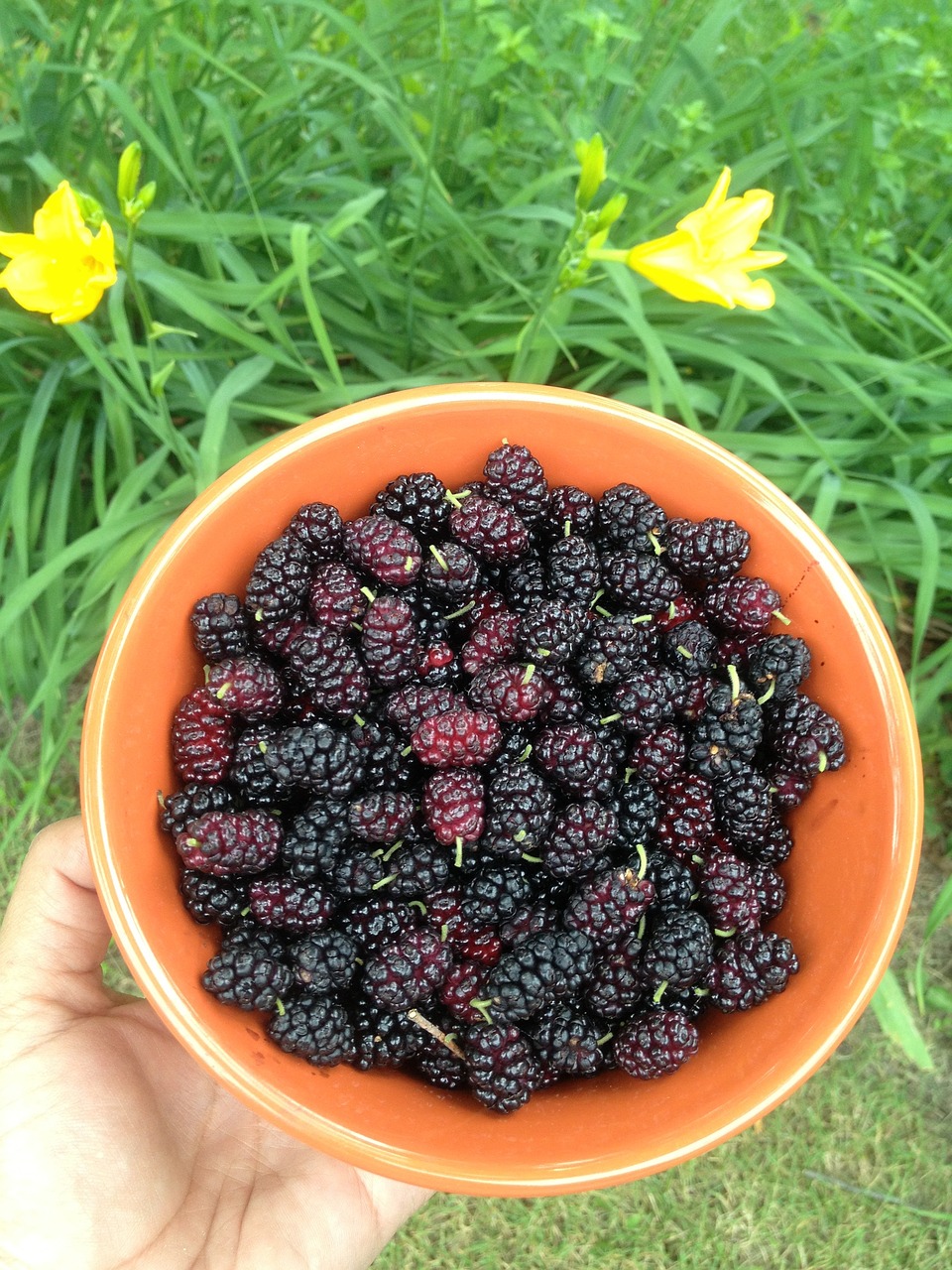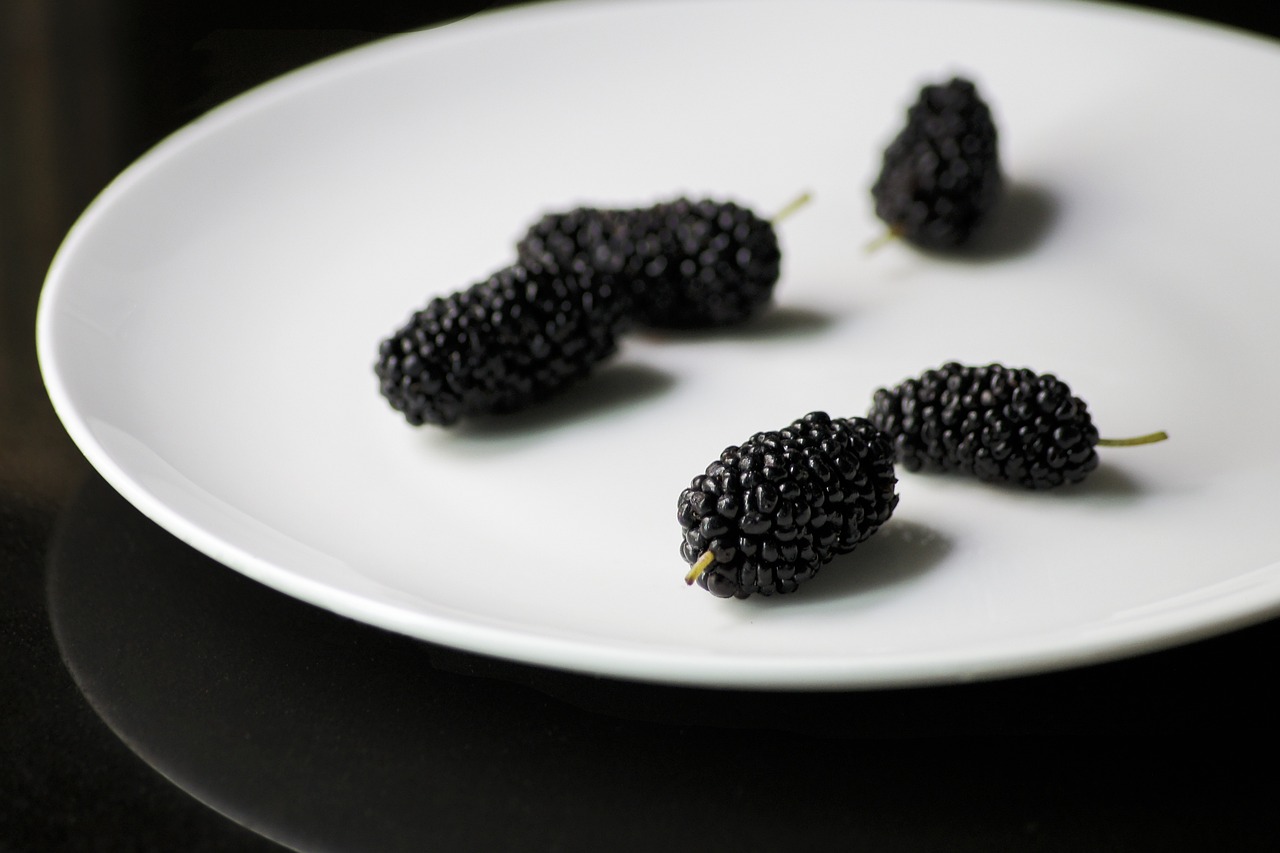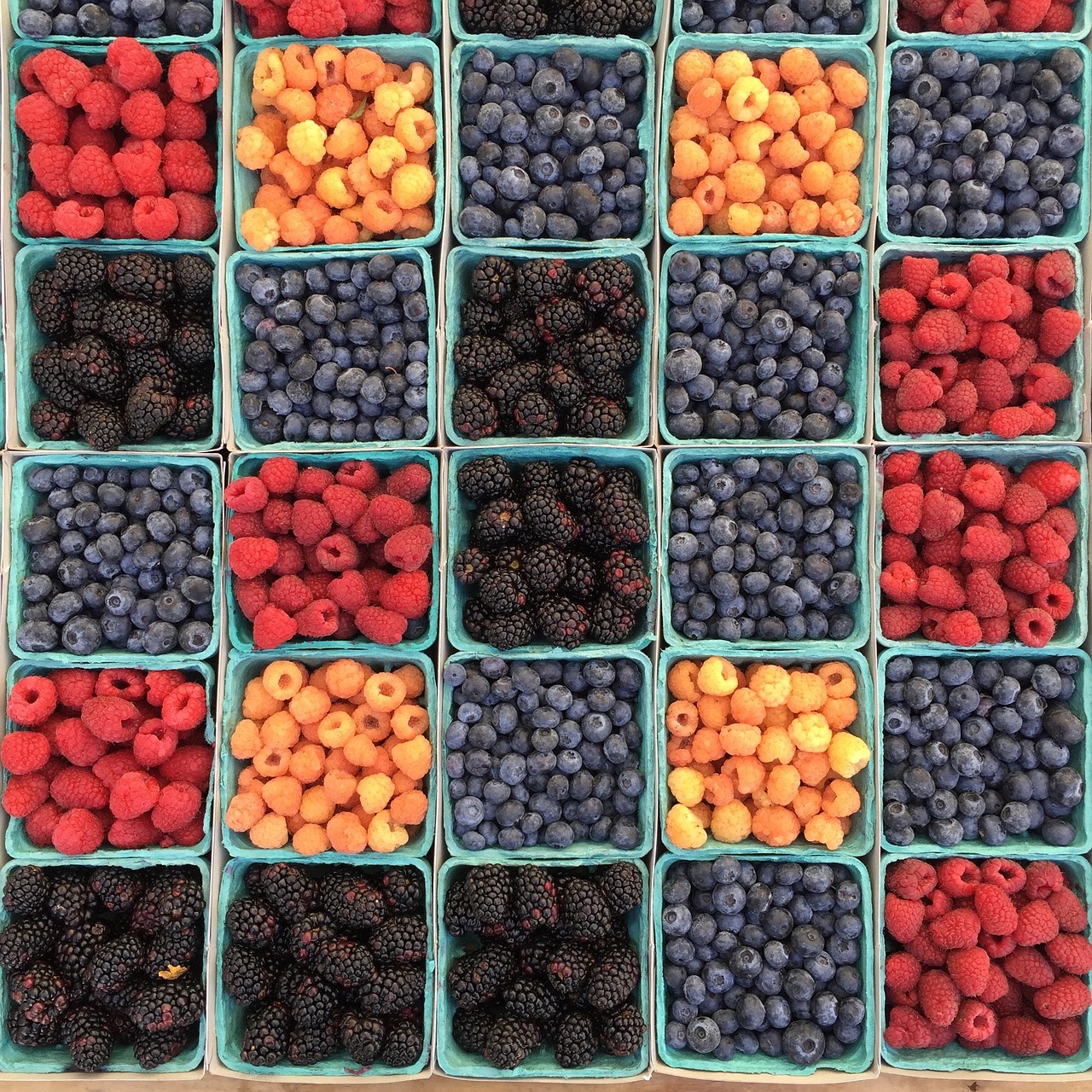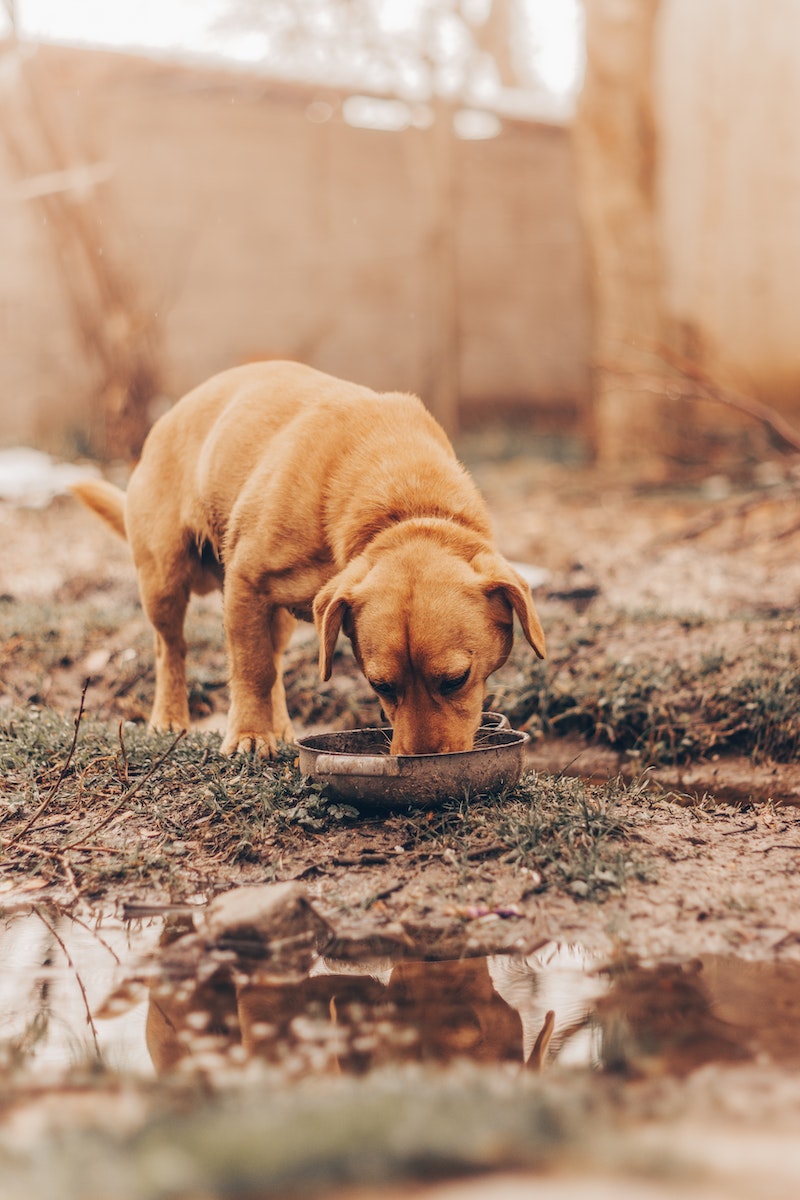Dogs are omnivores and can eat a wide variety of foods, but not all human food is safe for them to consume. Can dogs eat mulberries? It’s an important question that pet owners should consider when introducing new foods into their dog’s diet.
Mulberries have become increasingly popular due to their sweet flavor and nutritional benefits, so it makes sense that you would want your pup to enjoy some too! In this article we’ll cover what mulberries are, if they’re safe for dogs to eat, how to prepare them properly and serve them safely, as well as answer any other common questions about feeding your pup these delicious berries.
So whether you’re looking for a healthy snack alternative or just curious if Fido can join in on the fun – let’s dive right into learning more about “can dogs eat mulberries”!

Table of Contents:
- What Are Mulberries?
- Can Dogs Eat Mulberries?
- How to Prepare and Serve Mulberries to Dogs
- Common Questions About Feeding Dogs Mulberries
- Alternatives to Feeding Dogs Mulberries
- FAQs in Relation to Can Dogs Eat Mulberries
- Conclusion
What Are Mulberries?

Mulberries are a type of fruit that have been enjoyed for centuries. They are native to parts of Asia, Europe, and North America and come in many different varieties. Mulberries are small, round fruits with a sweet flavor that can be eaten raw or used in recipes.
Nutritional Value of Mulberries:
Mulberries contain high levels of vitamins A and C as well as minerals such as calcium, iron, magnesium, phosphorus, potassium and zinc. They also contain dietary fiber which helps promote healthy digestion. Additionally mulberries are rich in antioxidants which help protect the body from free radical damage caused by environmental toxins like pollution or UV radiation from the sun.
Different Types of Mulberries:

There are several types of mulberry trees including white mulberry (Morus alba), black mulberry (Morus nigra) and red mulberry (Morus rubra). White mulberry is the most widely cultivated variety due to its sweet taste when ripe; it is often used for making jams or desserts. Black mulberry has a more tart flavor than white but still retains some sweetness; it’s usually found dried or made into preserves. Red mulberry has an intense flavor with hints of raspberry; this variety is best eaten fresh off the tree since it does not store well after being picked due to its soft texture when ripe.
Where To Find Mulberries:
Freshly harvested local organic produce markets may carry fresh seasonal varieties depending on where you live during certain times throughout the year, while other stores may offer frozen or canned options all year long if you do not have access to locally grown fruit near you. You can also grow your own at home if you live in an area where they thrive to acquire fresh ripe mulberries.
Mulberries are a nutritious and delicious treat for both humans and pets alike. However, it is important to understand the risks of feeding your dog mulberries before offering them as a snack. In this article, we will discuss whether or not dogs can eat mulberries and the benefits or risks associated with doing so.
Can Dogs Eat Mulberries?

Mulberries are a delicious and nutritious treat for your pup. They’re packed with vitamins, minerals, antioxidants, and fiber that can help support your dog’s overall health. But before you start feeding them to your furry friend, it’s important to understand the benefits and risks of mulberries for dogs.
Benefits of Feeding Dogs Mulberries:
Mulberries are rich in vitamin C which helps boost immunity and fight off infections. They also contain dietary fiber which aids digestion and helps keep stool regular. The antioxidants found in mulberries can help protect against free radical damage while promoting healthy skin and coat growth. Finally, they provide essential minerals like iron, magnesium, potassium, phosphorus, zinc and copper which all play an important role in maintaining good health.
Risks of Feeding Dogs Mulberries:
The main risk associated with feeding mulberries to dogs is choking hazards due to their small size. It’s best to chop or mash up the berries before giving them as treats so they don’t pose a danger if swallowed whole by accident. Additionally, some dogs may be allergic or sensitive to certain fruits including mulberry so it’s always wise to check with your vet first before introducing any new food into their diet just in case there could be an adverse reaction from eating it.
How Much & How Often Should You Feed Your Dog Mulberries?

It is recommended that you feed no more than one tablespoon per 10 pounds of body weight per day when introducing any new food into your pet’s diet – this includes mulberry treats. Start slow at first until you know how well-tolerated the fruit is by your pup, then adjust accordingly based on how they respond after eating it regularly over time if needed (ease into larger amounts).
If possible, try offering fresh mulberries rather than dried berries since these tend to have higher levels of nutrients, but either way make sure not to exceed the recommended amount given above as too much can lead to digestive upset or other issues depending on individual sensitivities/allergies etc.
Overall, mulberries can be a safe and healthy treat for your dog. However, it is important to understand the potential risks associated with feeding them to your pup and to ensure that you are providing a balanced meal. With these considerations in mind, let’s look at how best to prepare and serve mulberries for your canine companion.
How to Prepare and Serve Mulberries to Dogs

Mulberries are a tasty treat for dogs, but they must be prepared and served correctly. Cleaning and chopping the berries is an important step in ensuring your pup enjoys their snack safely. Serving fresh or dried mulberries to your dog can also provide them with additional vitamins and minerals. Lastly, adding other foods to the mix will create a balanced meal that’s sure to please any pup’s palate.
Cleaning and Chopping the Berries: Before serving mulberries to your pet, it’s important to clean them properly. Gently rinse off each berry under cold running water before patting dry with a paper towel or cloth napkin. Once all of the berries have been cleaned, chop them into small pieces so they’re easier for your dog to eat without choking on larger chunks of fruit.
Mulberries can be served either fresh or dried depending on what you have available at home. If using fresh berries, make sure to only give 1-2 per day as too many could cause stomach upset due to their high sugar content; whereas if your dogs eat dried mulberries, 2-3 per day should suffice as long as there are no added sugars or preservatives present in the product packaging label ingredients list.
Adding other healthy foods such as cooked lean meats like chicken breast strips cut into small cubes along with some steamed vegetables like broccoli florets makes for a complete meal that provides essential nutrients for optimal health benefits in addition to being delicious. You can even add some plain yogurt which contains probiotics, beneficial bacteria that helps support digestion while providing calcium necessary for strong bones and teeth development in growing puppies too.
Mulberries can be a great snack for dogs, as long as they are prepared and served properly. As with any new food, it is important to understand the potential risks associated with feeding mulberries to your dog before introducing them into their diet. Let’s look at some common questions about feeding dogs mulberries next.
Common Questions About Feeding Dogs Mulberries

Mulberries are a sweet and nutritious snack for dogs, but it’s important to understand the risks before feeding them to your pup. Here are some common questions about feeding dogs mulberries.
Is It Safe for Puppies to Eat Mulberries?
Yes, puppies can safely eat mulberries as long as they’re served in moderation. However, since puppies have smaller stomachs than adult dogs, you should limit their portion size accordingly. You should also avoid giving them any dried or processed versions of the berries since these may contain added sugar or other unhealthy ingredients that could be harmful to their health.
Are There Any Side Effects from Eating Too Many Mulberries?
Eating too many mulberries can cause an upset stomach in both puppies and adult dogs due to its high fiber content. If your dog experiences vomiting or diarrhea after eating too many of the berries, it’s best to reduce their portion size and feed them smaller amounts more frequently instead of one large serving at once. Additionally, make sure not to give your dog any unripe mulberries or moldy mulberry fruits as these can be toxic berries if ingested in large quantities.
Are There Any Special Considerations When Feeding Senior Dogs Mulberries?

Senior dogs may benefit from eating mulberry fruits due to their antioxidant properties which help protect against age-related diseases such as cancer and heart disease. However, senior pups may need softer foods that are easier on their digestive system so consider pureeing the berries into a smoothie or mash before serving them up for dinner time. As always with any new food item introduced into your pet’s diet, start slowly by introducing small amounts first and watch out for signs of adverse reactions like vomiting or diarrhea before increasing portion sizes over time.
When it comes to feeding mulberries to your pup, it’s important to consider the potential side effects and any special considerations for senior dogs. Fortunately, there are plenty of alternatives available that can provide a nutritious and delicious treat or meal for your pet.
Alternatives to Feeding Dogs Mulberries

When it comes to feeding your dog, mulberries can be a great treat. They are packed with nutrients and provide plenty of health benefits for your pup. However, if you’re looking for some alternatives to feeding your dog mulberries, there are several other fruits and vegetables that make great treats or part of a meal.
Other Fruits That Are Safe for Dogs to Eat: Apples, bananas, blueberries, cantaloupe, cranberries, grapes (in moderation), mangoes, oranges and strawberries are all safe options when it comes to giving your pup a healthy snack. All these fruits contain vitamins and minerals that help keep them healthy while providing an enjoyable snack.
Vegetables That Can Be Fed as Treats or Part of a Meal: Carrots are one of the most popular vegetables fed to dogs as they provide plenty of vitamins A & C along with fiber which helps promote digestive health in pups. Other vegetables such as green beans and sweet potatoes also make excellent snacks or additions to meals because they contain essential vitamins and minerals like iron which helps boost energy levels in dogs.
FAQs in Relation to Can Dogs Eat Mulberries

What happens when dogs eat mulberries?
Mulberries are generally considered safe for dogs to eat in small amounts. However, they can cause an upset stomach or diarrhea if eaten in large quantities. Additionally, the seeds of mulberries contain a compound called amygdalin which is toxic and could be harmful if ingested in large amounts. Therefore, it’s best to feed your dog only a few mulberries at a time as treats rather than giving them access to the entire plant. If you notice any adverse reactions after feeding your pet mulberries, contact your veterinarian immediately.
Which berries are poisonous to dogs?

Certain berries can be toxic to dogs if ingested. These include raisins, grapes, currants, and blueberries. Eating these berries can cause vomiting, diarrhea, dehydration and even kidney failure in some cases. Additionally, holly berries are highly toxic to dogs and should never be eaten by them as they contain a toxin that causes severe gastrointestinal upset and can even lead to death. It is important for pet owners to ensure their pets do not have access to any of these potentially dangerous fruits or plants.
Are dogs allergic to mulberry trees?
No, dogs are not typically allergic to mulberry trees. However, some individual dogs may be sensitive or even have an allergy to certain components of the tree such as pollen or other allergens that can be found in the leaves and bark. If you suspect your dog is having a reaction after being around a mulberry tree or if your dogs eat mulberry leaves accidently, it’s best to consult with your veterinarian for further advice.
Conclusion

In conclusion, it is safe for dogs to eat mulberries in moderation. When feeding your dog mulberries, make sure they are fresh and ripe berries and serve them in small amounts as a treat. If you have any questions about whether or not your pet can eat mulberries, always consult with your veterinarian first. Remember that there are other alternatives to feeding your pup mulberries if you decide against it; however, if done properly, can dogs eat mulberries without any issues.
Do you want to know if your pup can eat mulberries? Look no further than AltPet.net! Our experts have the answers to all of your pet-related questions, including whether or not dogs can safely consume this berry. With our extensive research and knowledge base, we’re here to provide reliable information so that you don’t have to worry about what might be harmful for your furry friends. Come check out AltPet.net today and get informed on everything related to pets!

